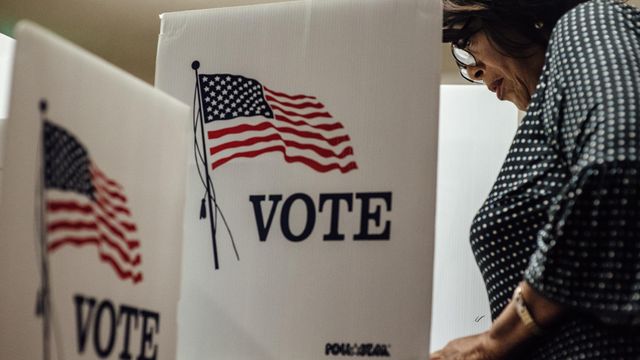State court boots NC's voter ID law, again
The fight over voter ID continues, but in a 2-1 decision, North Carolina judges declared the state's photo ID law unconstitutional.
Posted — UpdatedThe decision doesn't change anything at the ballot box for now, because the court had already forbidden the state from requiring photo ID at the polls while the issue works its way through the courts. Municipal elections scheduled for this fall were set to go without the requirement, despite a majority of North Carolina voters adding a photo ID requirement to the state constitution in a 2018 referendum.
But the more detailed rules that the General Assembly's Republican majority passed in the wake of that referendum, laid out in Senate Bill 824, targeted voters based on race, Superior Court Judges Michael O'Foghludha and Vince Rozier said in their decision Friday.
The judges, both Democrats, based their decision on much of the same logic used to strike down a previous North Carolina voter ID law, 2013's House Bill 589.
"In reaching this conclusion, we do not find that any member of the General Assembly who voted in favor of S.B. 824 harbors any racial animus or hatred towards African American voters," the judges wrote. "But rather, as with H.B. 589, that the Republican majority 'target[ed] voters who, based on race, were unlikely to vote for the majority party. Even if done for partisan ends, that constitute[s] racial discrimination.'”
Superior Court Judge Nathaniel Poovey, a Republican, said in his dissent that "not one scintilla of evidence was introduced" during the April trial "that any legislator acted with racially discriminatory intent," and he noted the bill had support from a handful of black lawmakers as it moved through the legislature.
"Plaintiffs' evidence relied heavily on the past history of other lawmakers and used an extremely broad brush to paint the 2018 General Assembly with the same toxic paint," Poovey wrote. "The majority opinion in this case attempts to weave together the speculations and conjectures that plaintiffs put forward as circumstantial evidence of discriminatory intent."
Rozier and O'Foghludha said the state failed to show that the bill "would have been enacted in its present form if it did not tend to discriminate against African American voters."
"Other, less restrictive voter ID laws would have sufficed to achieve the legitimate nonracial purposes of implementing the constitutional amendment requiring voter ID, deterring fraud, or enhancing voter confidence," the judges wrote.
Sam Hayes, general counsel for House Speaker Tim Moore, said the ruling will be appealed.
"Once again, liberal judges have defied the will of North Carolinians on election integrity," Hayes said in a statement. "Senate Bill 824 is one of the most generous in the country, and it was modeled on those of other states. At trial, plaintiffs could not produce a single witness who would be unable to vote because of the law."
"Photo voter ID laws are designed to bolster confidence in elections. Calling this law irredeemably racist does the exact opposite," Sen. Paul Newton, R-Cabarrus, chairman of the Senate Redistricting and Elections committee, said in a statement. "The Republican-led legislature has made incredible strides to increase confidence in elections, and Democrats continue to use the judicial branch to thwart the will of the majority of North Carolinians."
The case was brought by attorneys with the Southern Coalition for Social Justice and other attorneys on behalf of five North Carolina voters. The coalition's executive director, Allison Riggs, called the ruling “a strong message that racial discrimination will not be tolerated.”
"The state’s Republican-controlled legislature undeniably implemented this legislation to maintain its power by targeting voters of color," Riggs said in a statement. "Should legislative defendants appeal today’s ruling, we’ll be prepared to remind them of what this court and the state’s constitution mandate: every vote matters.”
• Credits
Copyright 2024 by Capitol Broadcasting Company. All rights reserved. This material may not be published, broadcast, rewritten or redistributed.






